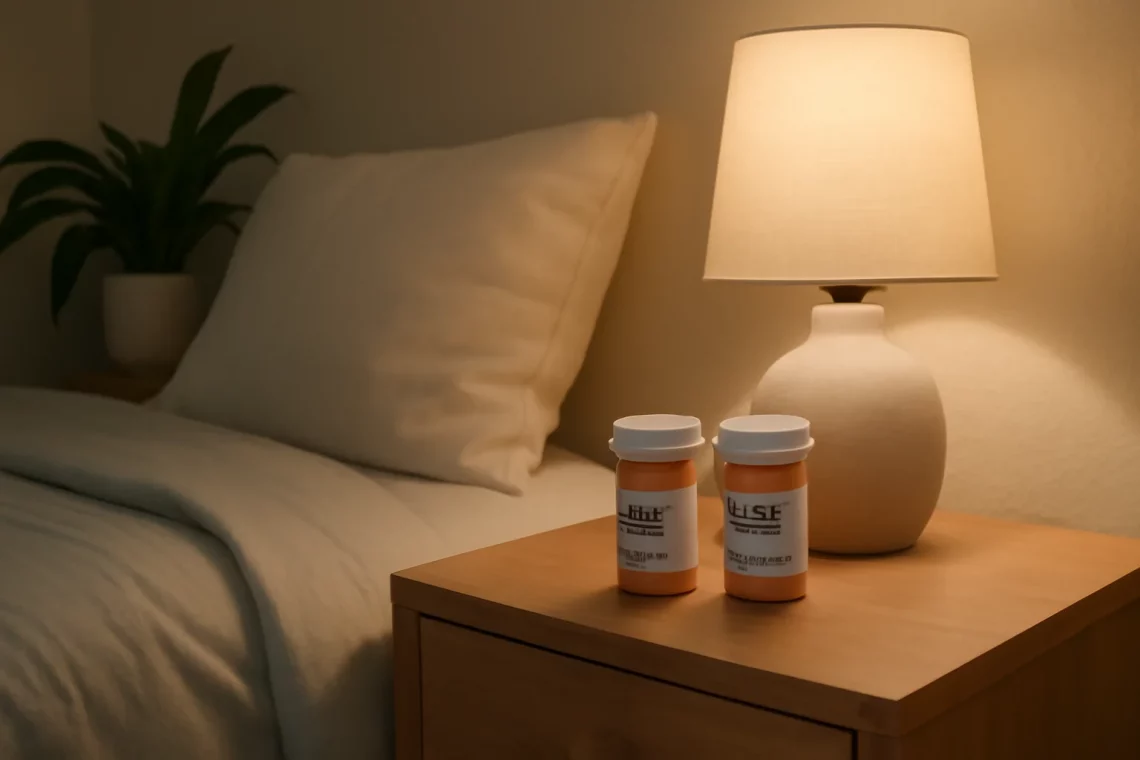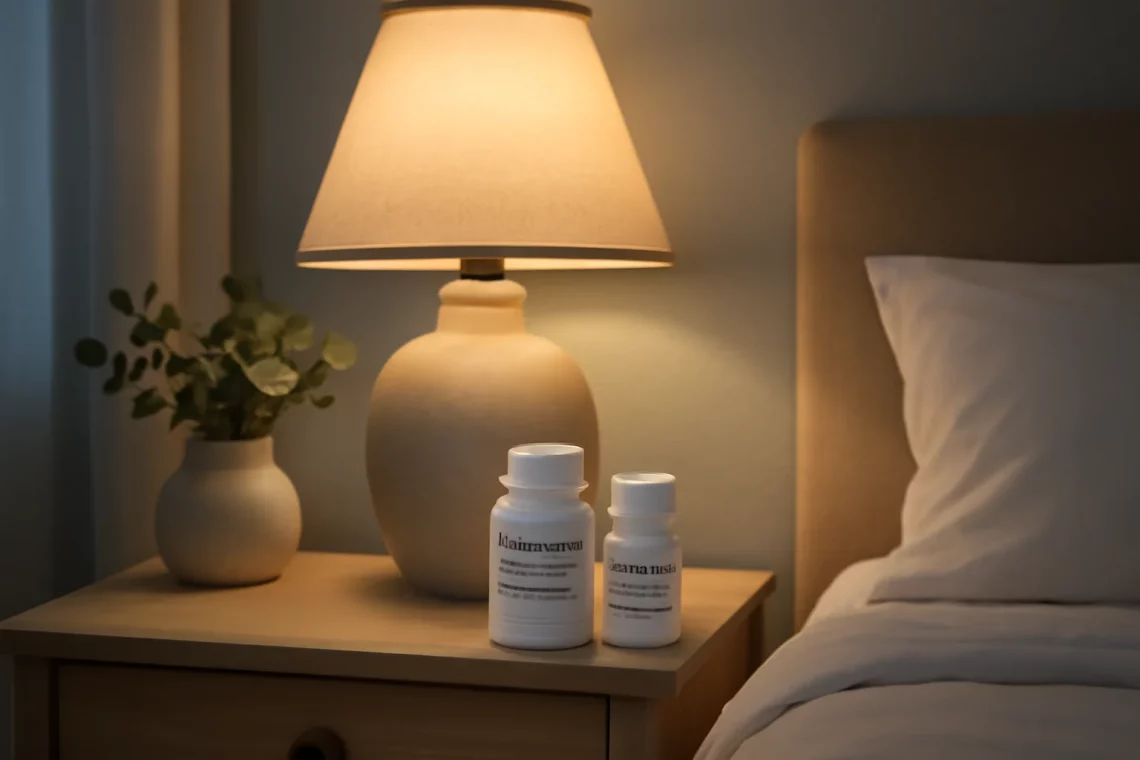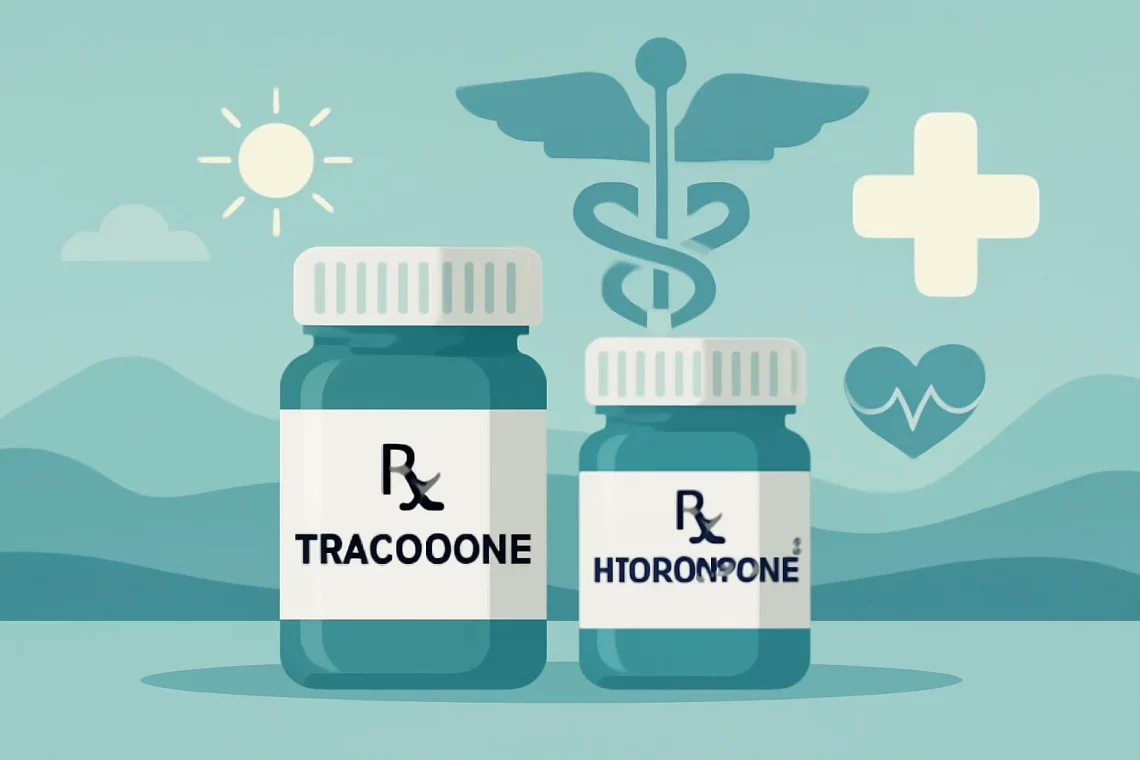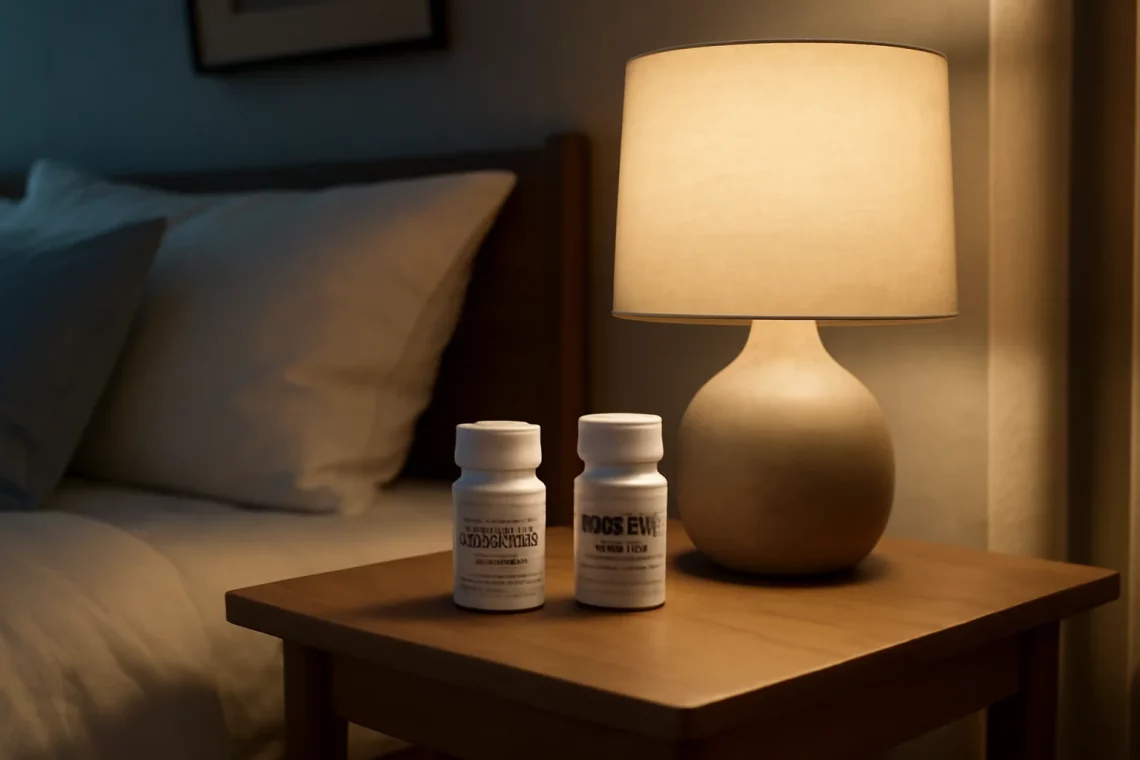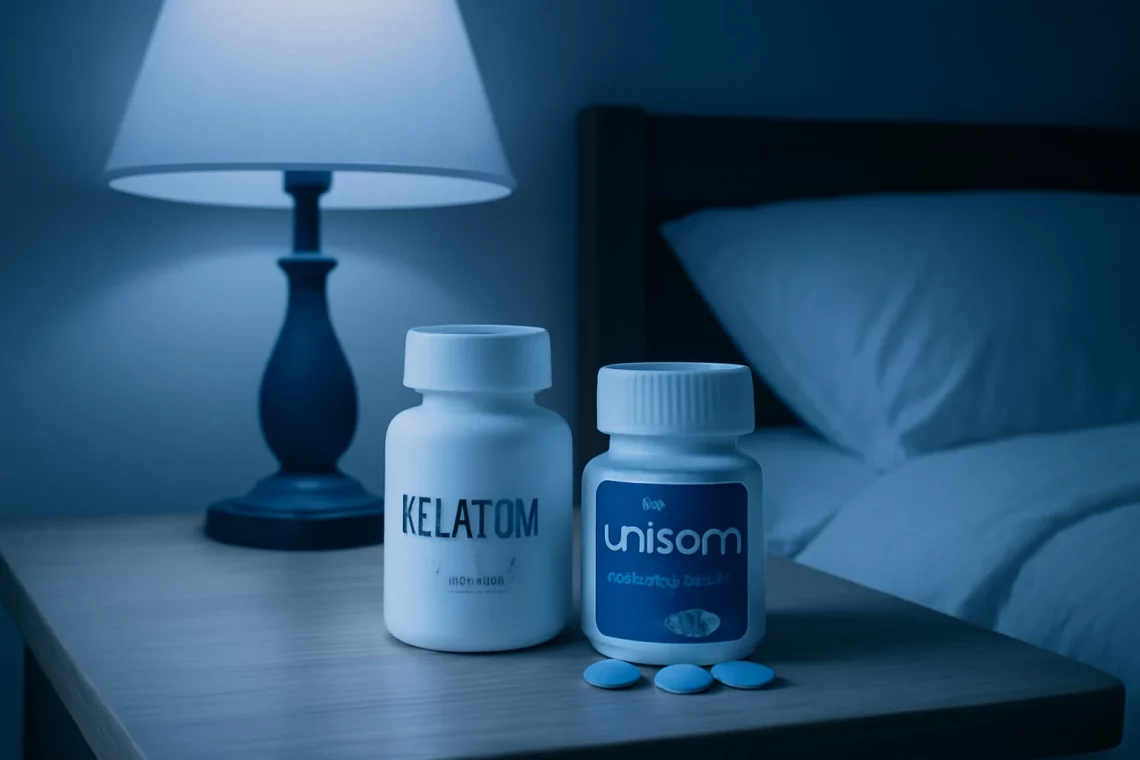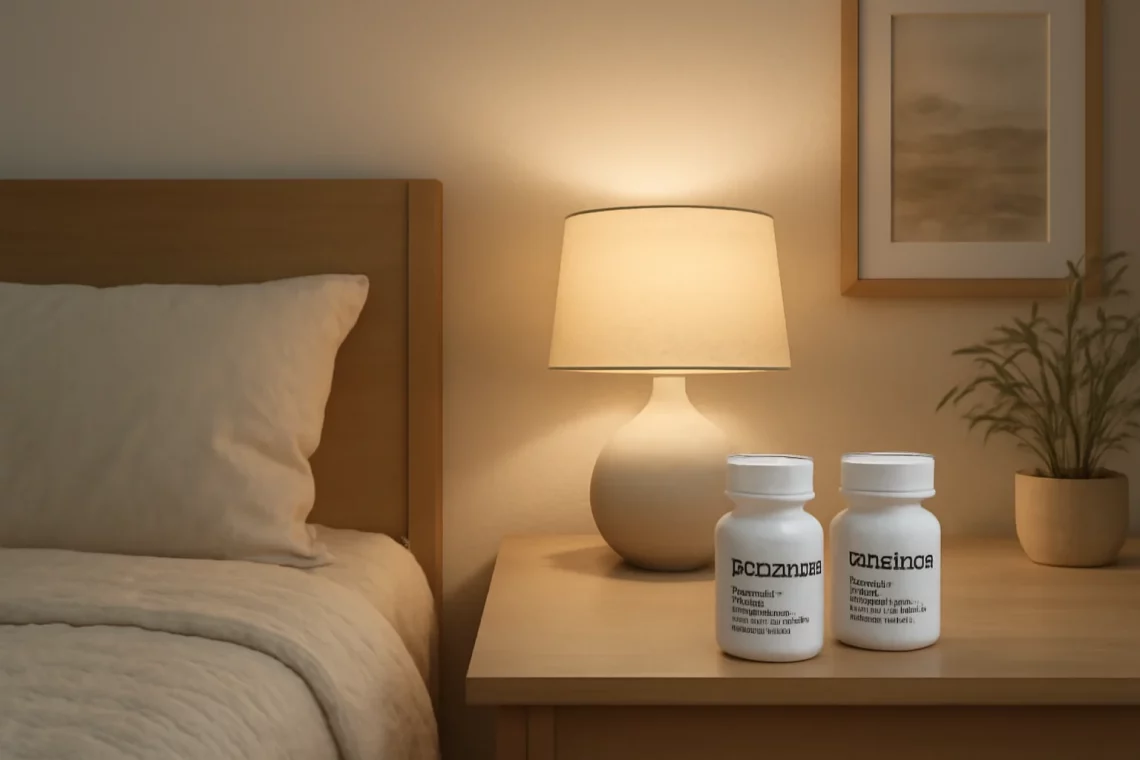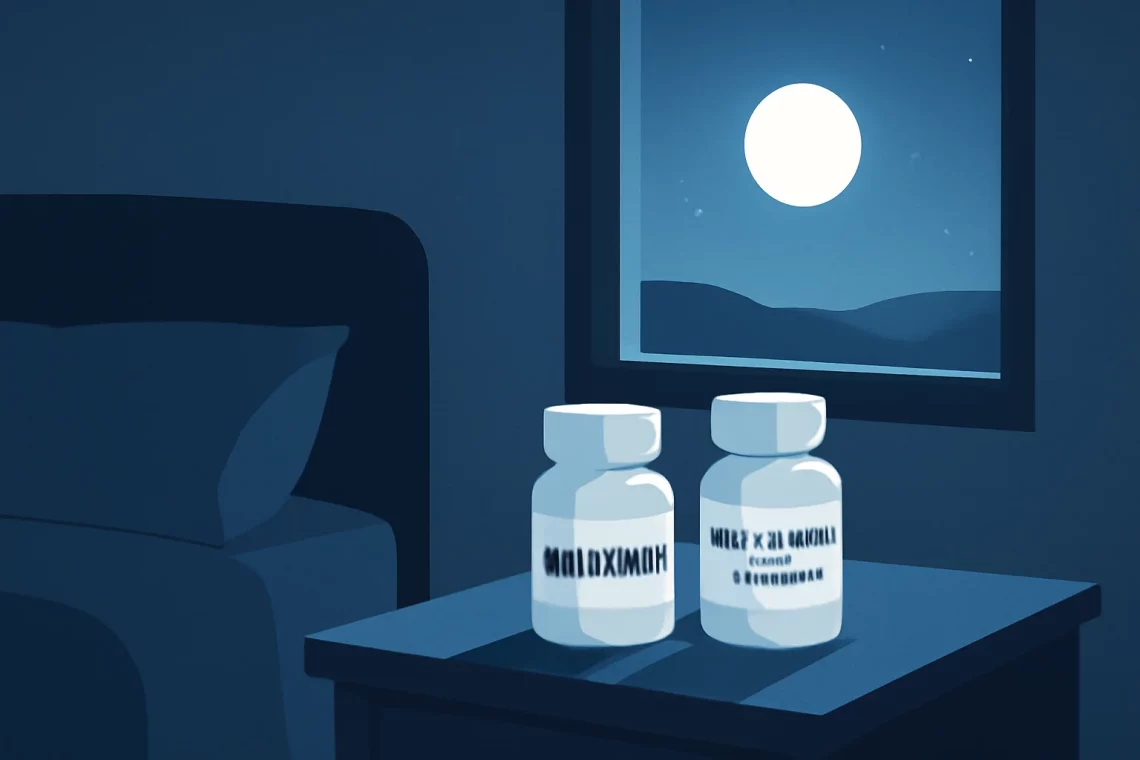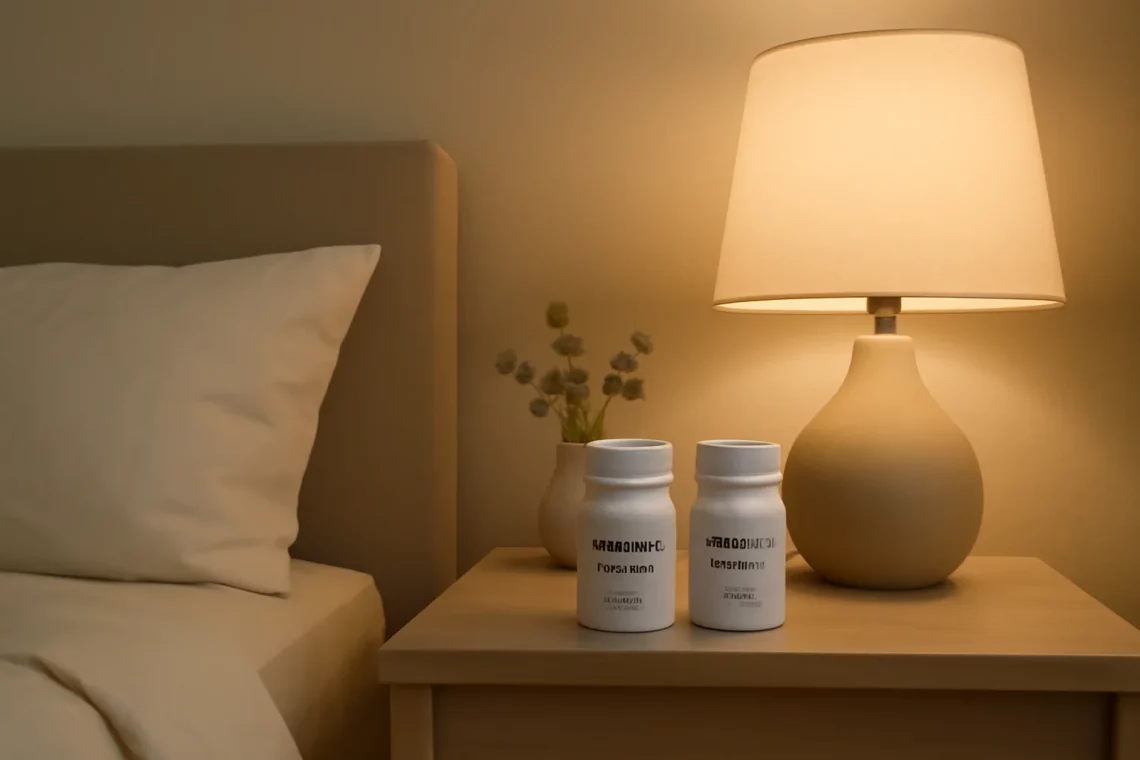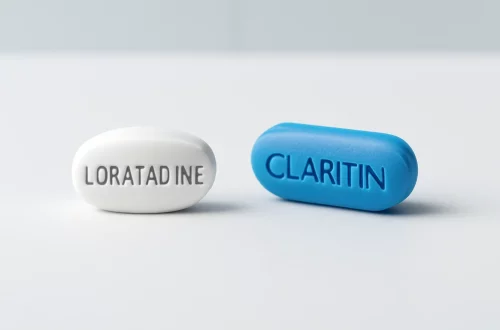-
Ativan vs Restoril: Comparing Two Popular Sleep Medications
Ativan and Restoril are two medications commonly prescribed to treat anxiety and sleep disorders. Both belong to the class of benzodiazepines, which are known for their sedative and anxiolytic effects. While they share some similarities in their mechanism of action and therapeutic uses, they also have distinct differences that can influence a physician’s choice when prescribing them. Understanding these differences is essential for patients who may be considering treatment options for anxiety or insomnia. The use of benzodiazepines has become a topic of discussion in recent years, as healthcare providers and patients weigh the benefits against the potential risks associated with long-term use. Issues such as dependency, tolerance, and withdrawal…
-
Trazodone vs Belsomra: Which Sleep Aid is Right for You?
Trazodone and Belsomra are two medications often utilized in the management of sleep disorders and mood-related conditions. As the prevalence of insomnia and other sleep-related issues continues to rise, many individuals find themselves exploring various treatment options. Prescription medications can offer significant relief, but understanding the differences between these drugs is crucial for making informed decisions about treatment. Trazodone, originally developed as an antidepressant, has gained popularity as an off-label sleep aid due to its sedative properties. Its ability to promote sleep and improve overall sleep quality has led to widespread use, but it is important to consider its side effects and interactions with other medications. On the other hand,…
-
Trazodone vs Hydroxyzine: Which is Better for Your Needs?
The distinction between various medications can often be a complex and daunting task, especially when it comes to understanding their specific uses, effects, and potential side effects. As our understanding of mental health and wellness evolves, so too does the array of pharmacological options available to those seeking relief from conditions such as anxiety, depression, and insomnia. Two medications that frequently come up in discussions around treatment options are Trazodone and Hydroxyzine. These drugs, while both used to treat anxiety and sleep disorders, belong to different classes and have unique mechanisms of action. Trazodone is primarily known as an antidepressant, but it is also often prescribed off-label for insomnia due…
-
Quviviq vs Ambien: Which Sleep Aid Is Right for You?
Sleep disorders have become increasingly common in today’s fast-paced world, with many individuals struggling to achieve a restful night’s sleep. As a result, various medications have been developed to help alleviate insomnia and other sleep-related issues. Among these, Quviviq and Ambien have gained attention for their efficacy in treating sleep disturbances. Both medications have unique properties, mechanisms of action, and side effects, making it crucial for patients and healthcare providers to understand their differences and similarities. Quviviq, a relatively new addition to the sleep medication market, targets specific receptors in the brain to promote sleepiness without the same level of dependence that can come with traditional sleep aids. On the…
-
Melatonin vs Unisom: Which Sleep Aid Is Right for You?
Sleep is an essential part of our daily lives, influencing our overall health, mood, and productivity. However, many individuals struggle with sleep-related issues, leading to a growing interest in sleep aids. Among the various options available, two prominent names often come up: Melatonin and Unisom. Both have gained popularity as solutions for sleepless nights, yet they operate differently and cater to varied needs. Understanding how each works, their benefits, and potential side effects can help individuals make informed choices about their sleep health. This article delves into the distinctions between Melatonin and Unisom, exploring their mechanisms, usage, and overall effectiveness as sleep aids. Understanding Melatonin Melatonin is a hormone that…
-
Zolpidem vs Eszopiclone: Which Sleep Aid is Right for You?
Zolpidem and eszopiclone are two commonly prescribed medications used to treat sleep disorders, particularly insomnia. As sleep-related issues continue to affect millions of people worldwide, understanding the differences, benefits, and drawbacks of these medications becomes increasingly important. Both drugs belong to a class of medications known as sedative-hypnotics, which work by influencing neurotransmitters in the brain to promote relaxation and sleep. However, despite their similar purposes, zolpidem and eszopiclone differ significantly in their mechanisms of action, side effects, and ideal usage scenarios. The growing prevalence of sleep disorders highlights the need for effective treatment options. Chronic insomnia can lead to a myriad of health issues, including anxiety, depression, and cognitive…
-
Melatonin vs Valerian Root: Which Sleep Aid is Right for You?
The quest for a good night’s sleep has led many people to explore various natural remedies. Among the most popular options are melatonin and valerian root, both of which have gained significant attention for their sleep-enhancing properties. Melatonin, a hormone naturally produced in the body, plays a crucial role in regulating the sleep-wake cycle. Valerian root, on the other hand, is an herbal supplement derived from the valerian plant, known for its calming effects. While both substances target sleep issues, they do so in different ways and may suit different individuals based on their unique needs and health profiles. As sleep disturbances become increasingly common in today’s fast-paced world, understanding…
-
Melatonin vs Diphenhydramine: Which Sleep Aid Is Right for You?
Sleep is an essential aspect of human health and well-being, yet many individuals struggle to attain the restorative rest they need. Various factors can contribute to sleep disturbances, including stress, lifestyle choices, and underlying medical conditions. As a result, many people turn to sleep aids to help them drift off to slumber. Among these aids, melatonin and diphenhydramine are two popular options that have garnered attention for their effectiveness in promoting sleep. Melatonin, a hormone naturally produced by the body, plays a crucial role in regulating sleep-wake cycles. On the other hand, diphenhydramine, an antihistamine commonly found in over-the-counter medications, is often used for its sedative properties. While both substances…
-
Quviviq vs Trazodone: Which Sleep Aid is Right for You?
Sleep disorders are increasingly common in today’s fast-paced world, affecting millions of people globally. As the importance of restful sleep becomes more recognized, various treatments have emerged to help individuals manage their sleep difficulties. Among these treatments, medications like Quviviq and Trazodone have gained attention due to their differing mechanisms of action and applications. While both are used to promote better sleep, they come from distinct pharmacological backgrounds and have unique side effect profiles. Quviviq, a newer entrant in the sleep aid market, aims to address insomnia through a novel mechanism that targets specific receptors in the brain. In contrast, Trazodone, originally developed as an antidepressant, has become a commonly…
-
Trazodone vs Ambien: Which Sleep Aid Is Right for You?
Sleep disorders have become increasingly prevalent in today’s fast-paced world, where stress and anxiety often interfere with a good night’s rest. As individuals seek solutions to their sleep-related issues, various medications have emerged as popular treatments. Among these, Trazodone and Ambien are two commonly prescribed options, each with distinct mechanisms and applications. Understanding the differences between these medications is crucial for those considering them as part of their sleep management strategy. Both Trazodone and Ambien have gained recognition for their effectiveness in promoting sleep, yet they operate in unique ways and cater to different patient needs. Trazodone, originally developed as an antidepressant, has been found to have sedative properties that…
